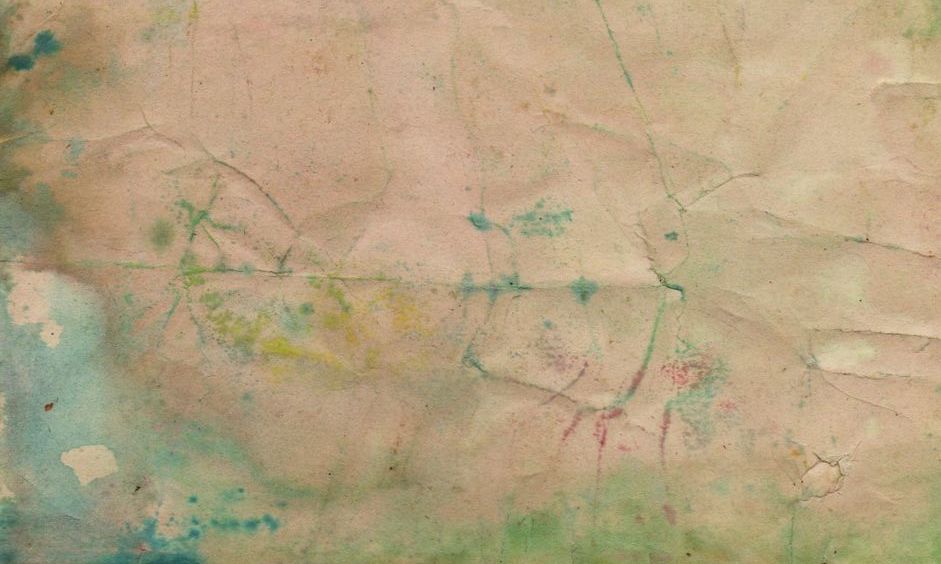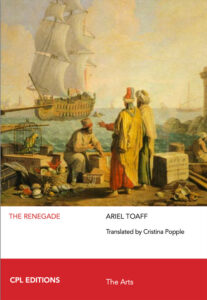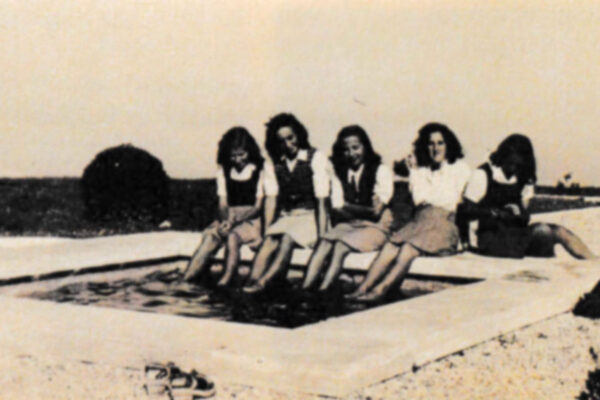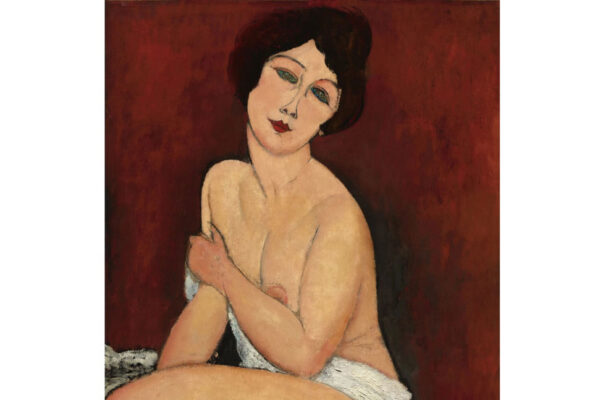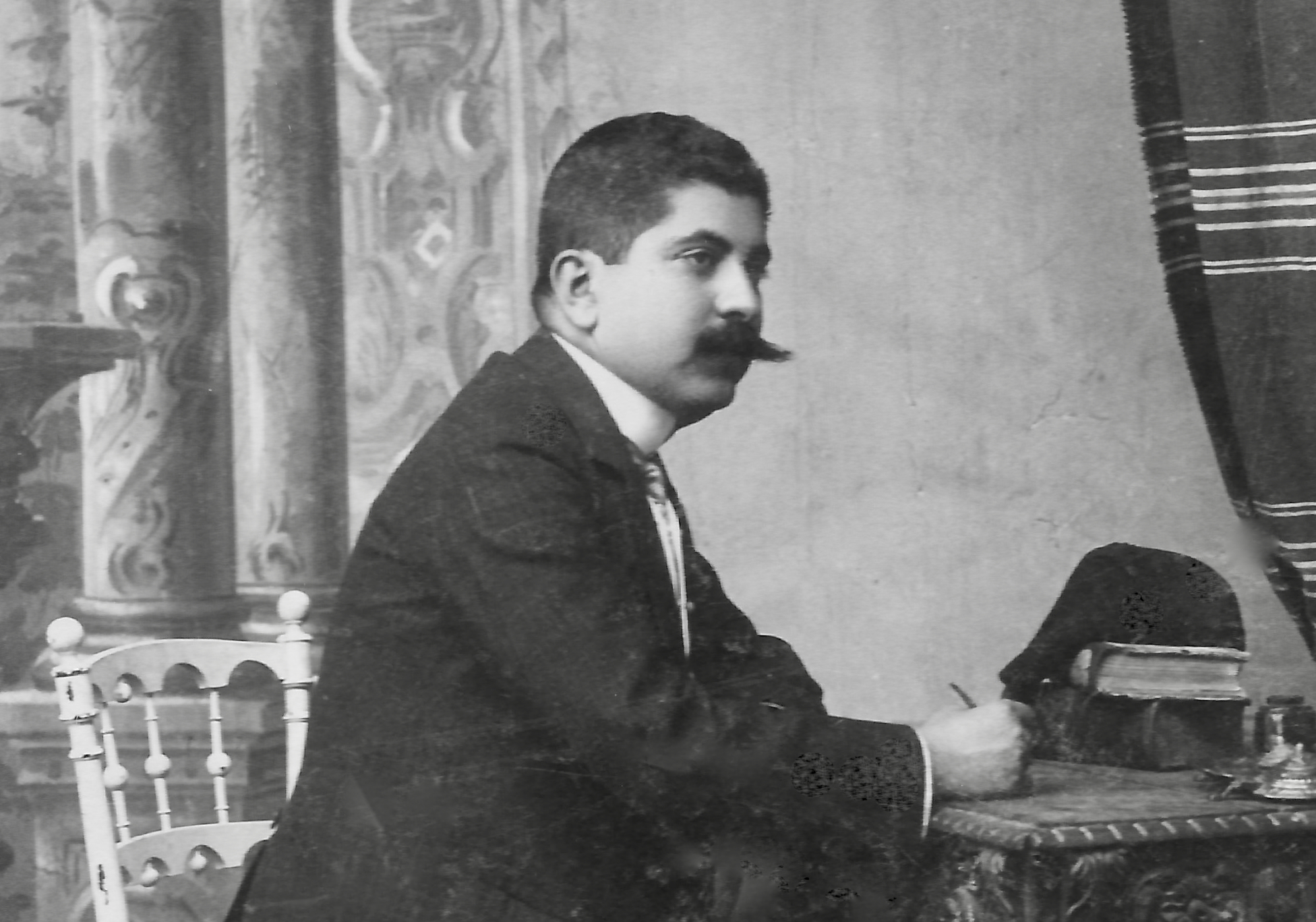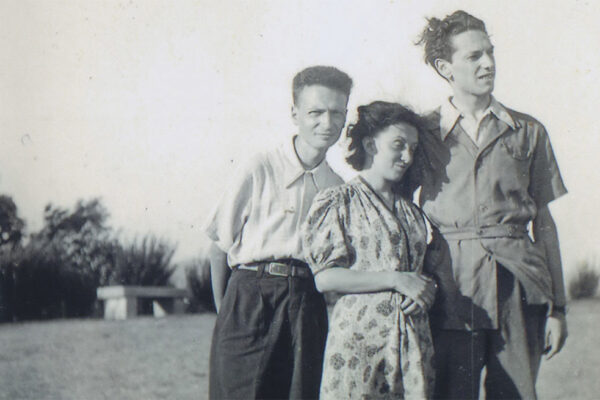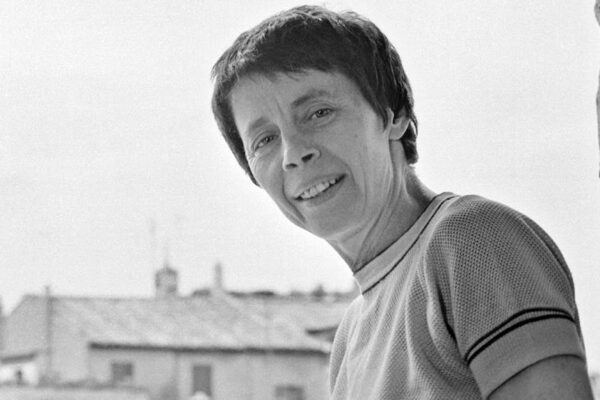THE RENEGADE
Finally, historian Ariel Toaff’s first novel, The Renegade, is available in English from CPL Editions. It is a captivating literary debut: a meticulously documented historical mystery page-turner about the scandalous life of a 19th century rabbi.
On a morning in 1840, a young boy discovers, under an olive tree on the outskirts of Nablus, the body of David Ajash, an Italian rabbi and kabbalist of Algerian origin. Homicide or suicide?
The literary device is the son of the Rabbi immersing himself in his estranged father’s diary-testament, retracing adventures and misfortunes consumed amidst religious intrigues, powerful amulets, Freemasonry, conversions, and murder attempts. Ajash’s story transports the reader from Ottoman Palestine to early 19th-century Livorno, a vital Jewish center connecting North Africa, Western Europe, and Palestine through publishing and intellectual debate.
More than a fictionalized biography, The Renegade seamlessly merges historical questions and hypotheses into the fabric of a work of literary fiction. All of this, while portraying in vivid brushstrokes, the Jewish Nation of Livorno in the staggering vitality of its hay day: Hebrew printing, philosophical debates, sea-trade, as well as foods, smells, brothels, and shifting alliances.
Ariel Toaff is a rabbi and a historian. Born in Ancona, Italy, he lives in Tel Aviv, where he is professor emeritus of Medieval and Renaissance History at the Bar-Ilan University. He is an expert of Medieval and early modern Jewish history in central Italy and wrote extensively on Medieval Jewish society, customs and gastronomic history. He came to international prominence in 2007 with the publication of the first edition of his controversial book Pasque Di Sangue (Blood Passovers, Gyan Books Hong Kong, 2007). The Renegade is his first novel.
INTERNEE N. 6
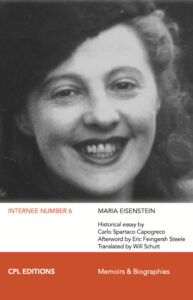 CPL Editions, the press of Centro Primo Levi New York is pleased to announce the publication of Maria Eisenstein’s Internee Number 6, the earliest memoir written in a Fascist internment camp in Italy. Translated to English for the first time by poet and literary translator Will Schutt, the memoir provides an intimate account of uprooting, war, and imprisonment. A long-lost treasure, Eisenstein’s work paints a subtle fresco of the cultural and psychological atmosphere in which well-meaning men and women performed ideals of morality, strength, and valor which acted as Fascism’s foundation.
CPL Editions, the press of Centro Primo Levi New York is pleased to announce the publication of Maria Eisenstein’s Internee Number 6, the earliest memoir written in a Fascist internment camp in Italy. Translated to English for the first time by poet and literary translator Will Schutt, the memoir provides an intimate account of uprooting, war, and imprisonment. A long-lost treasure, Eisenstein’s work paints a subtle fresco of the cultural and psychological atmosphere in which well-meaning men and women performed ideals of morality, strength, and valor which acted as Fascism’s foundation.
Internee Number 6 was published in Rome in 1944, two months after the Allied Army entered the city. The small run of the first edition was mostly lost, and the book and its author, a Viennese literary scholar who had graduated from the University of Florence in the 1930s with a dissertation on Goethe, were almost immediately forgotten.
Eisenstein chronicles her experience starting on the day of her arrest by Mussolini’s police in June 1940, her incarceration in a Sicilian jail, and the subsequent transfer to the concentration camps of Lanciano, where she was interned alongside seventy-five other women inmates – Jewish, like herself, or citizens of “enemy countries”.
Ironically, due to the book’s pace—its wry humor, intimacy, and insights into societal morals, the dynamics of power, and the place of women—it was long believed to have been a work of fiction by a mysterious writer who assumed the name Maria Eisenstein. Subsequently, the memoir remained buried within select bibliographies while nothing concrete was known about its author. Only in 1989, historian Carlo Spartaco Capogreco, a pioneer in the study of the history of the Fascist concentration camps, finally retraced her story and, in 1994, published an annotated version of the memoir.


